March 11, 2023 – Millarville, Alberta
Thank you for your feedback on the Tempus Fugit post on Tuesday. I received some sage advice and novel suggestions on how to manage time and extract the most from it. Your recommendations are incorporated into this narrative.
How to overcome Tempus Fugit – the perception that time is flying at an ever-accelerating rate of speed.
In addition to analyzing your suggestions, and doing some noodling myself, I also watched an old documentary film on the subject of time manipulation, to gain further insight.
In the 1986 documentary film, Star Trek IV: The Voyage Home, two scientists, Bones and Spock, commandeer a Klingon Bird of Prey, which they nickname the HMS Bounty. The two aviators use “a star’s gravitational pull, and a slingshot maneuver at warp speed, to generate temporal fissure”.
Using this method, the protagonists are catapulted forward in time to 2024.

I am sure Bones and Spock will have much to say on the subject of time acceleration perception. Unfortunately, we won’t catch up to them until next year. We will have to do our best to solve the problem without their input for now.
It seems that there are three principal factors that affect the perception of time:
Relativity: For a 10-year-old, one year represents 10% of their lifetime. When we reach 60, a year is only about 1.7% of a life. An adult’s day seems much shorter relative to how it was as a child. This could account for the perception that time compresses as we age.
Cousin Tyler knows this. He is fast approaching a point in life where his yesterdays and his tomorrows will be equal, a perfect vantage point to analyze time relativity.
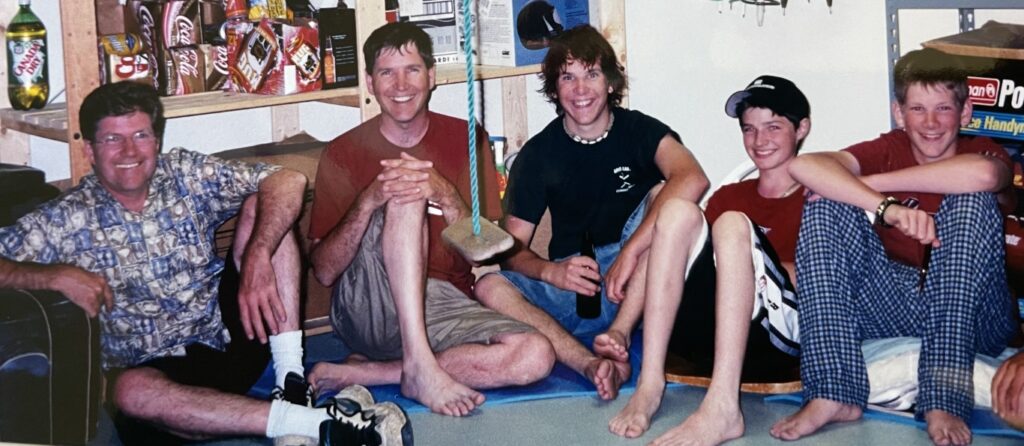
(Tyler far right, in 2005)
Event Interval: Another factor is this, we are conditioned to perceive time as that interval between memorable events. When we were children new experiences and sensations happened frequently. As we age, we don’t have fresh experiences as often. Using the interval between experiences meter we developed as a child, makes it seem that the clock is turning more quickly when significant events are widely spaced.
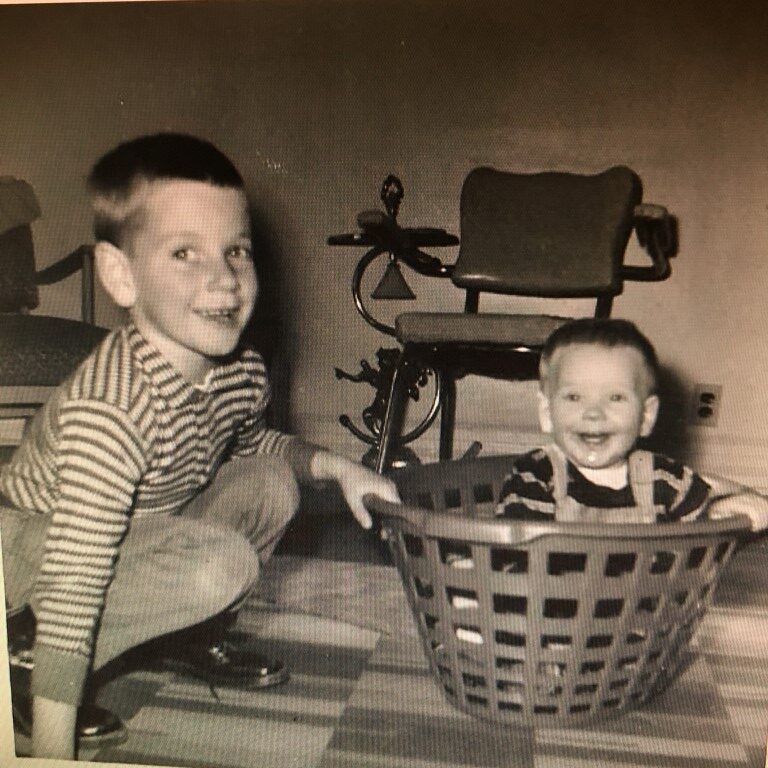
Brad and Kevin, creating memorable event intervals in about 1963.
Relative Importance: The third factor is the relative importance given to time by a child and an adult. Children don’t have a strong sense of urgency; each segment of a child’s life is unaffected by other things happening around them. We have all seen a child playing with a cardboard box, the box gets their full attention, without regard to other factors occurring in the world around them.
As we age, time acquires more meaning. We have appointments, time-sensitive duties, other people’s schedules to consider, all of which make time seem more relevant, and therefore more compact.
“Time and Tide Wait for no Man.”
Okay, so we know why we perceive time the way we do. What’s the solution?
Saint Mahrer said these words about the relentlessness of time in 1225 and nobody has found a way to dispute the proverb in 800 years. With your help, I would like to take a run at proving Mahrer wrong.
We will never slow the clock, but there must be ways to gain mastery over the perception of the passage of time.
If we use childhood time as a reference point, the passage of time is always going to seem fast and accelerating. Maybe we have to recalibrate, start thinking about time relative to what happened yesterday, not fifty years ago. If we live in the moment, concentrate on each event as it occurs, perhaps we can de-escalate the passage of time.
Life is like a pack of Life Savers; you can crunch through the whole tube in one sitting or savour each segment.
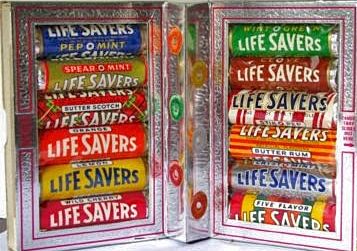
If time perception is ingrained as that period between monumental events, slowing time down should be as easy as changing the yardstick by which we measure it. Instead of using our inter-monumental-event clock, we could train ourselves to think of time relative to something mundane. If time was calibrated as that period between dental flossing (the one you tell your dentist, not the real one), it would expand the perception of the passage of time.
The time interval between the arrival of your monthly magazine subscriptions would seem much longer if measured with dental floss. If it seems like your National Geographic is showing up every week, think of it in terms of arriving every fifteen flosses.
It seems counterintuitive, but mundanity is the enemy of time. You would think that being bored, or engaged in repetitive tasks, would slow time down. Quite the opposite, five hours in front of a TV or a video game will appear like minutes when you look back on it. Slowing time down takes energy.
Find something to investigate, learn a new thing every day; when you reflect on the time spent it will seem much longer than your idle hours.
Riley made the observation that wildlife photographers sometimes sit in seclusion for months, in an attempt to capture a perfect image. Surely time moves more slowly for secluded people than it does for the rest of us, bustling around with appointments, and checking our devices every five minutes.
Riley and I don’t recommend isolating in a lighthouse, or an abandoned mountain-top fire tower for months on end, but maybe putting the iThing in a drawer for a few hours a day could prolong a life.
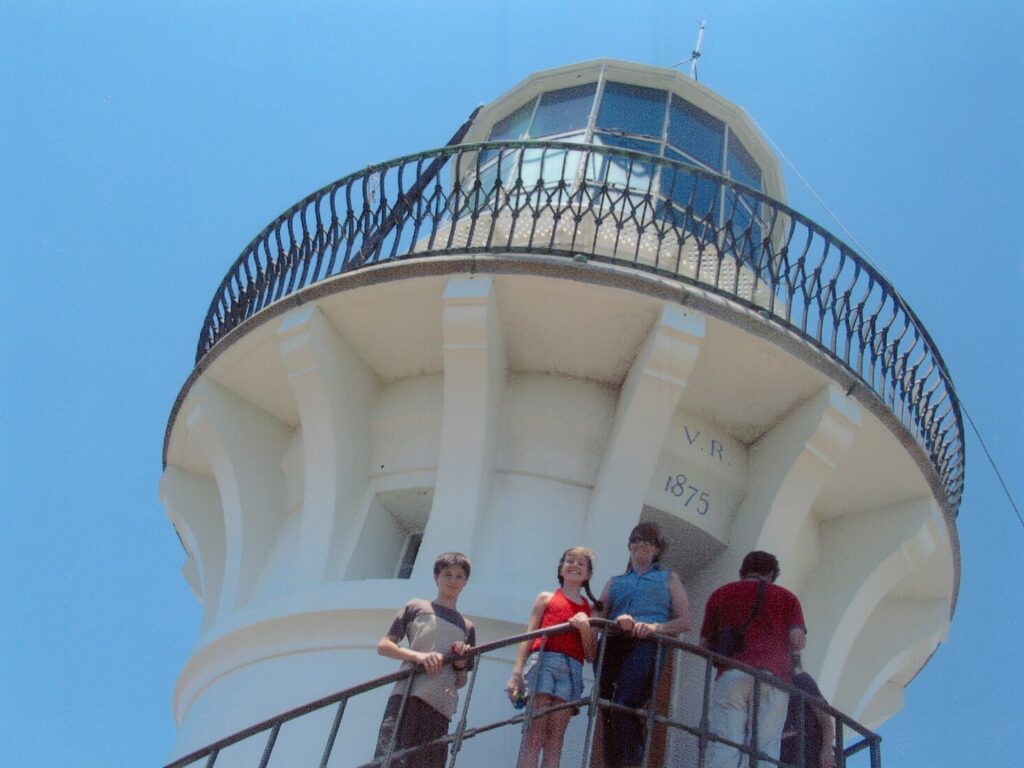
Marshall, Riley, and Bear – living in a lighthouse, 2002.
Time flies when you are having fun.
But does it have to? Isn’t it possible to slow things down and improve the quality of life at the same time?
The Smarties Song provides some insight. It is well hidden, but I think there is a message here…
When you eat your Smarties,
Do you eat the red ones last?
Do you suck them very slowly,
Or crunch them very fast?
Eat that candy-coated chocolate,
But tell me when I ask,
When you eat your Smarties,
Do you eat the red ones last?
Or you could Meditate. Meditation is like praying when nobody is listening. When we sit quietly and ponder, the answers we seek are conjured from fragmented data that already exists in our minds. Taking time to reflect every day, in seclusion, and without external stimuli, stretches the perception of time. Meditation also has the side effect of making each time segment more meaningful.
Or you could pray, whatever works for you.
An old friend (who I haven’t seen in far too long), Keith McD, said that for him, time perception management involves remaining youthful. In his words:
“It’s probably my age that tricks people into thinking that I’m an adult. It’s weird being the same age as old people.”
I think Keith is on to something.
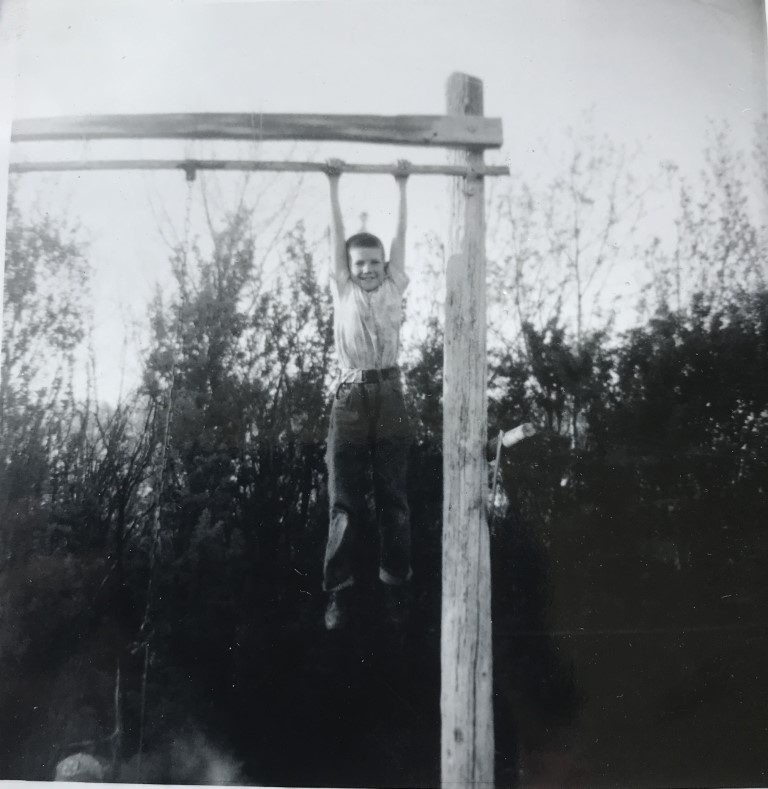
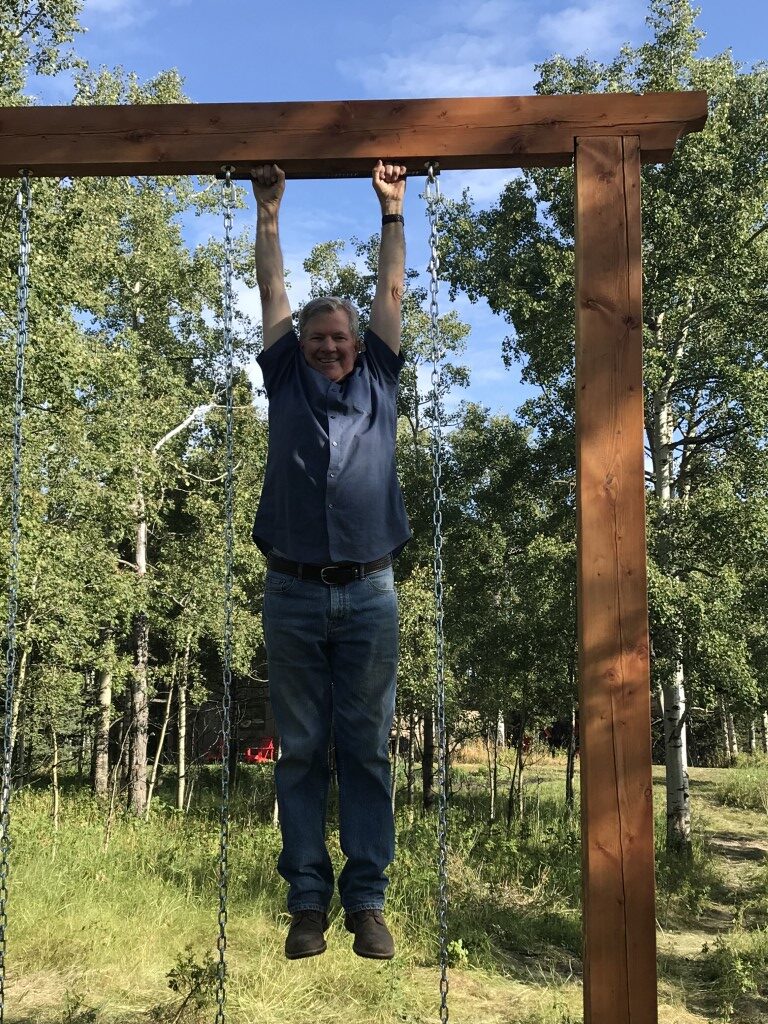
“The only reason for time is so that everything doesn’t happen at once” – Albert Einstein, via Gervais Goodman.
I am not entirely sure what this means, but considering the sources, (Einstein and Goodman), it must be profound.
Anticipation: A full calendar makes tomorrow seem like forever.
Time passes much more slowly when we are looking into the future than when we reflect on the past. When Bear and I have a trip planned, I am like a kid again, waiting impatiently for departure day to arrive.
Having an event planned, something to look forward to, is probably the best way to expand our perception of time. You will never recover the drawn-out anticipation of waiting to open Christmas presents, like you experienced as a child, but each event you anticipate creates an interval of time.
Anticipation time is cumulative. Having multiple events scheduled compounds the distension of time.
Okay, it’s time for me to stop scribbling and put our findings to the test. I think we made headway on overcoming Tempus Fugit. Writing this article took the better part of two days, it seemed much longer. That’s a start!
Thank you for your input on this important topic, you …
… Make Time Stand Still.
“And stay right here, these are the good old days.”
Anticipation – Carley Simon


Terry J
I read recently that us “older” folks are the most happy. I think the daily routine of our younger selves (work, family, household chores and other obligations) keeps our plate full with minimal time to create and rejuvenate. As our work hours diminish and we can change our pace, we can think more clearly and have “time” to appreciate our first-class Canadian life with choices abound. Time, money and health go together and if we have all three, we’ve won the lottery to do whatever makes our heart happy.
Russ
I could not agree more. We live at the intersection of the best time, place, and circumstances imaginable.
Gervais
Very good. Anticipation is a big one I think. I have a model railway loco parcel waiting for me at Shawnessy, due to snow and an obdurate Mini ( a whole other story about the freezing of the time space continuum) it’ll be Monday or Tuesday before I pick that parcel up. That’s a LONG way away, time will move very slowly. 🙂
Russ
Another locomotive! Are you trying to break the CPR monopoly?